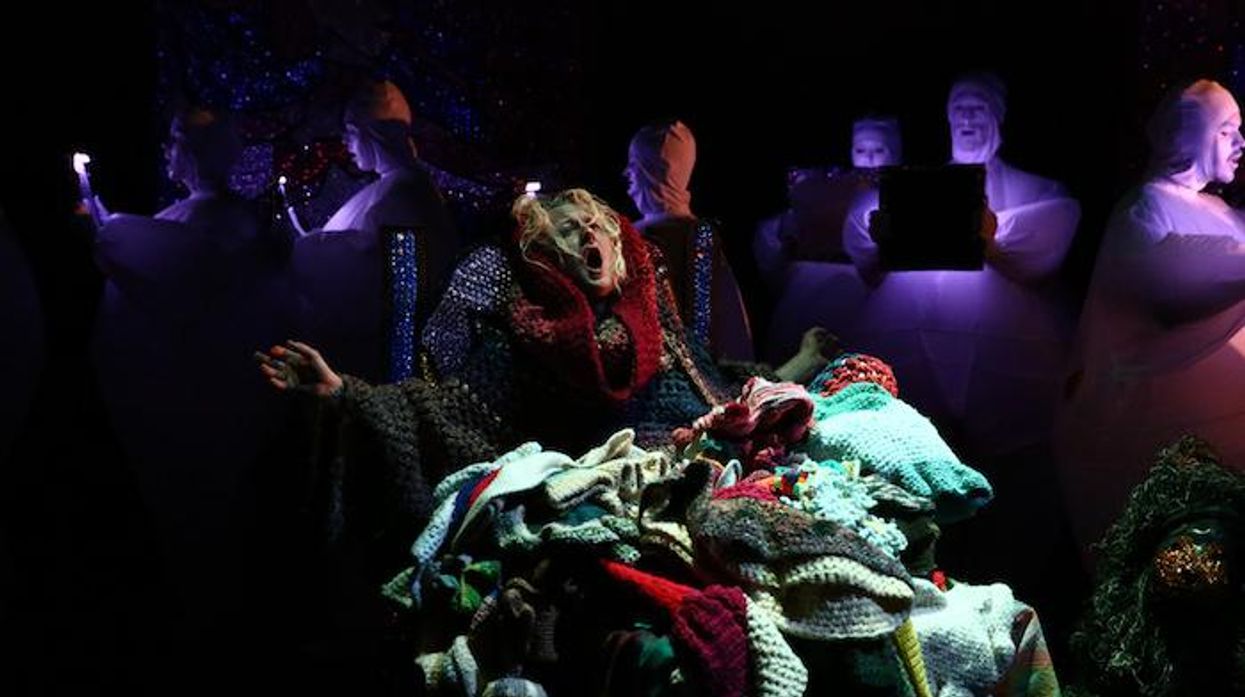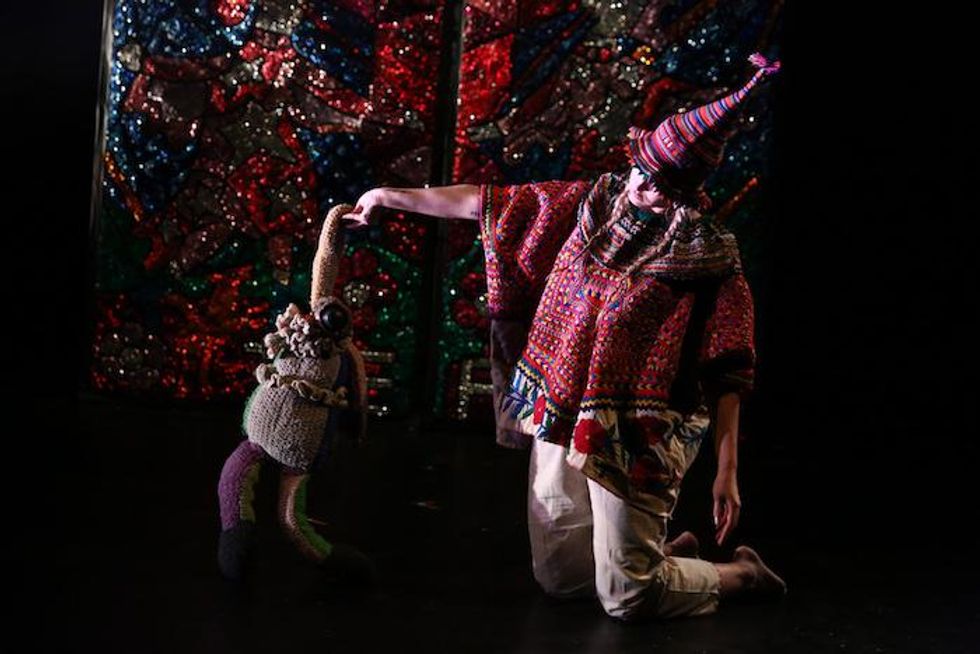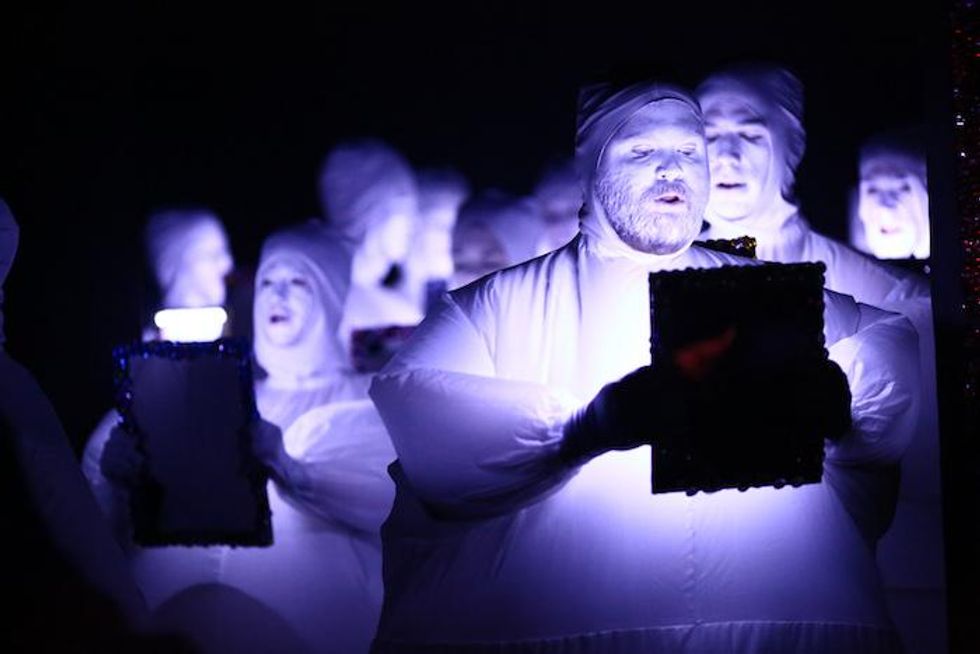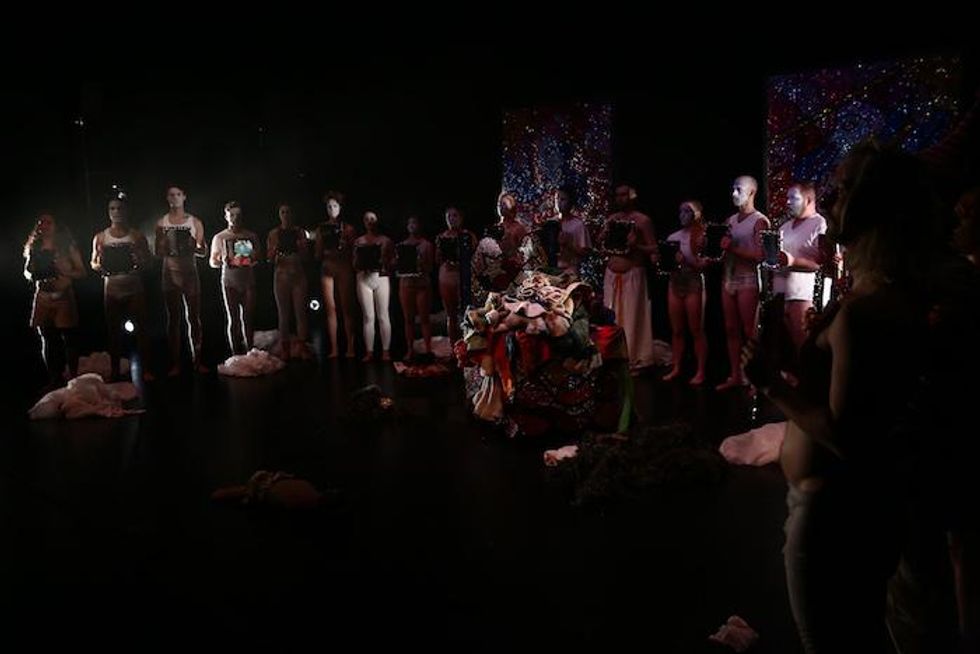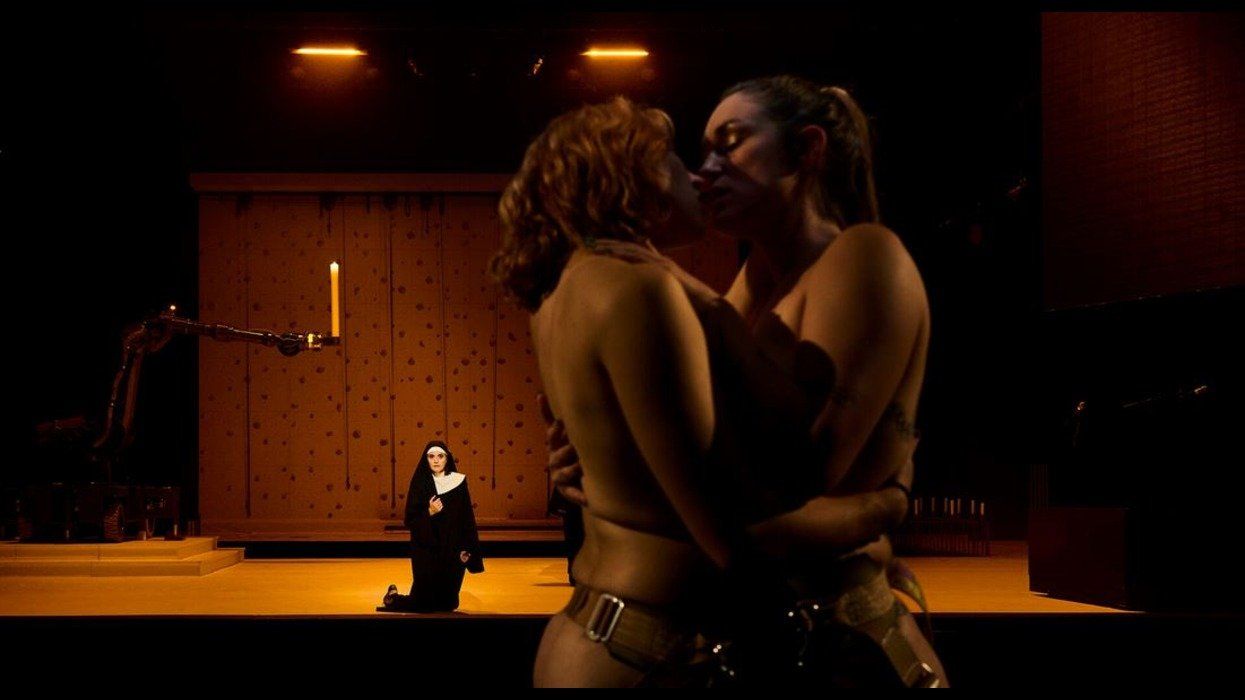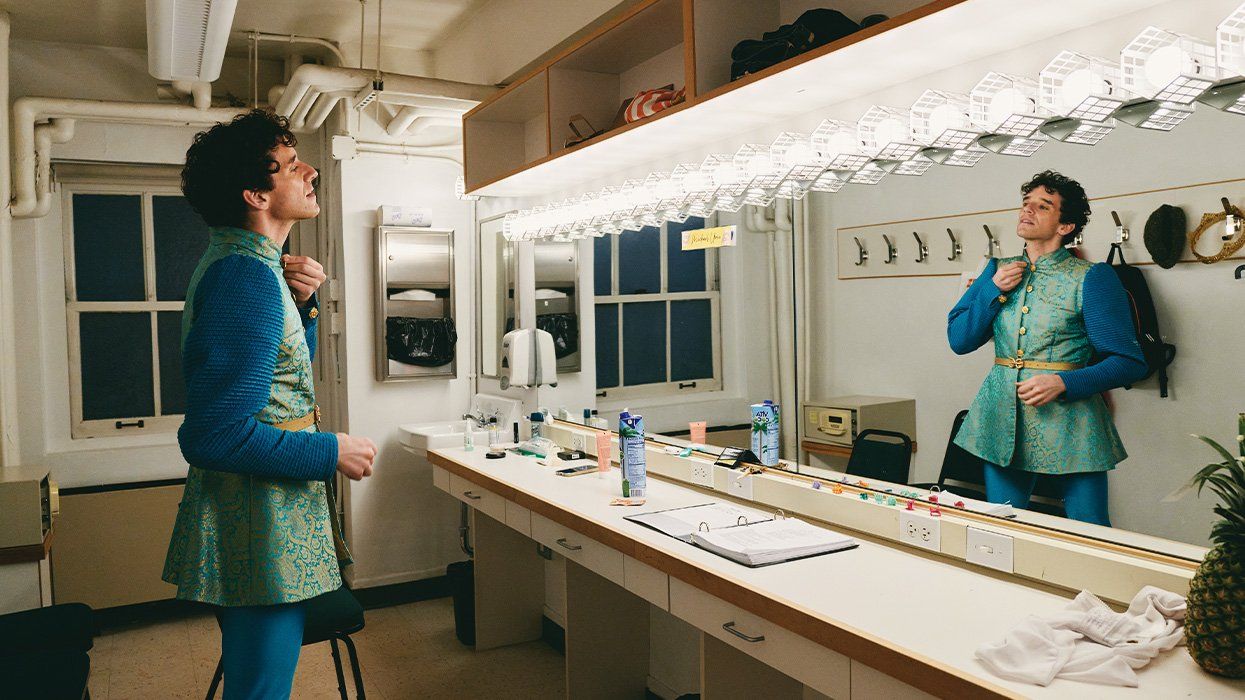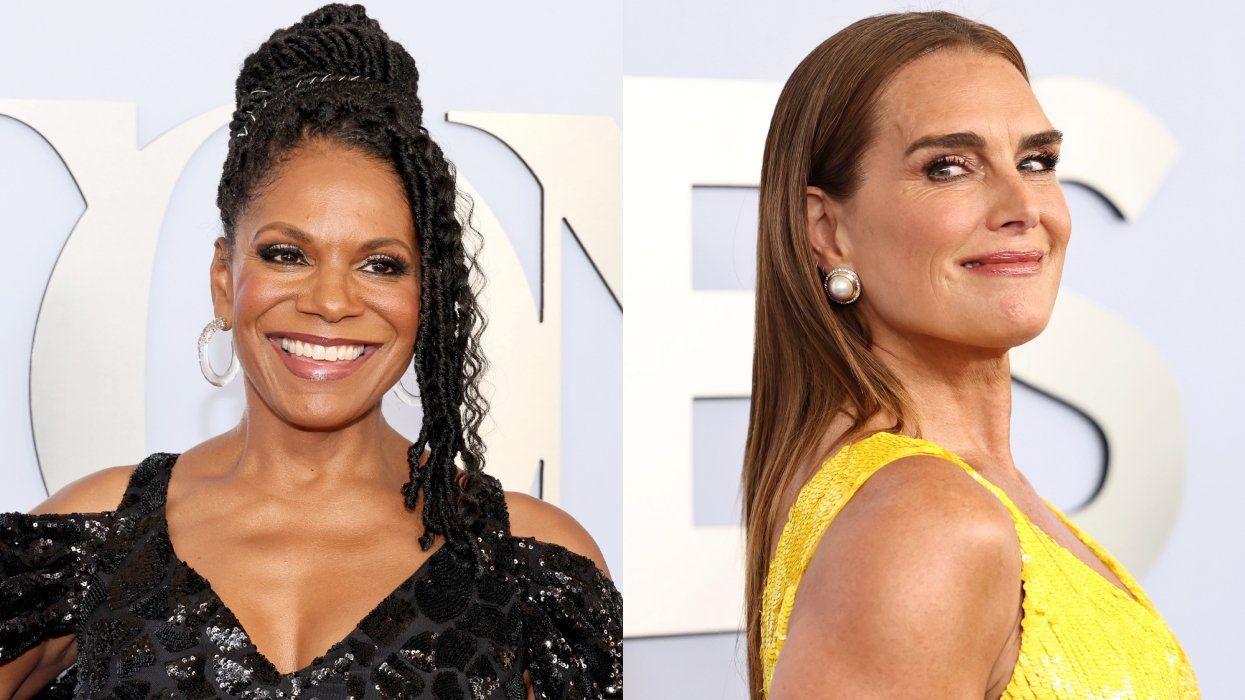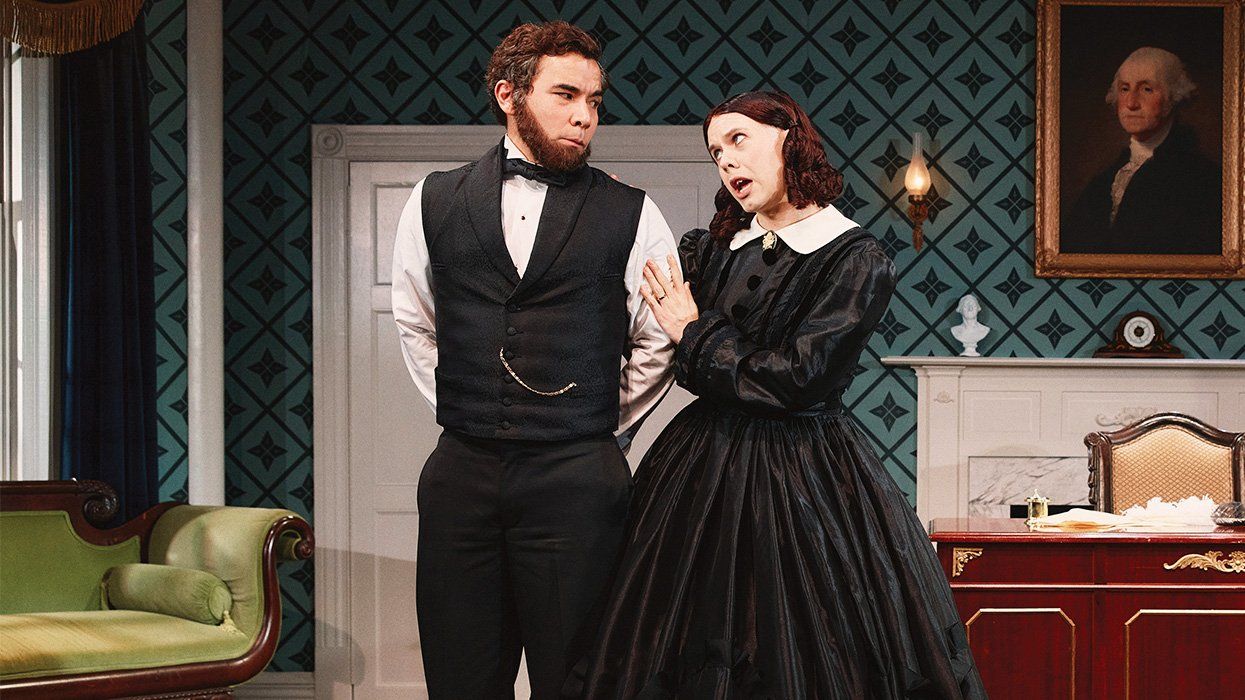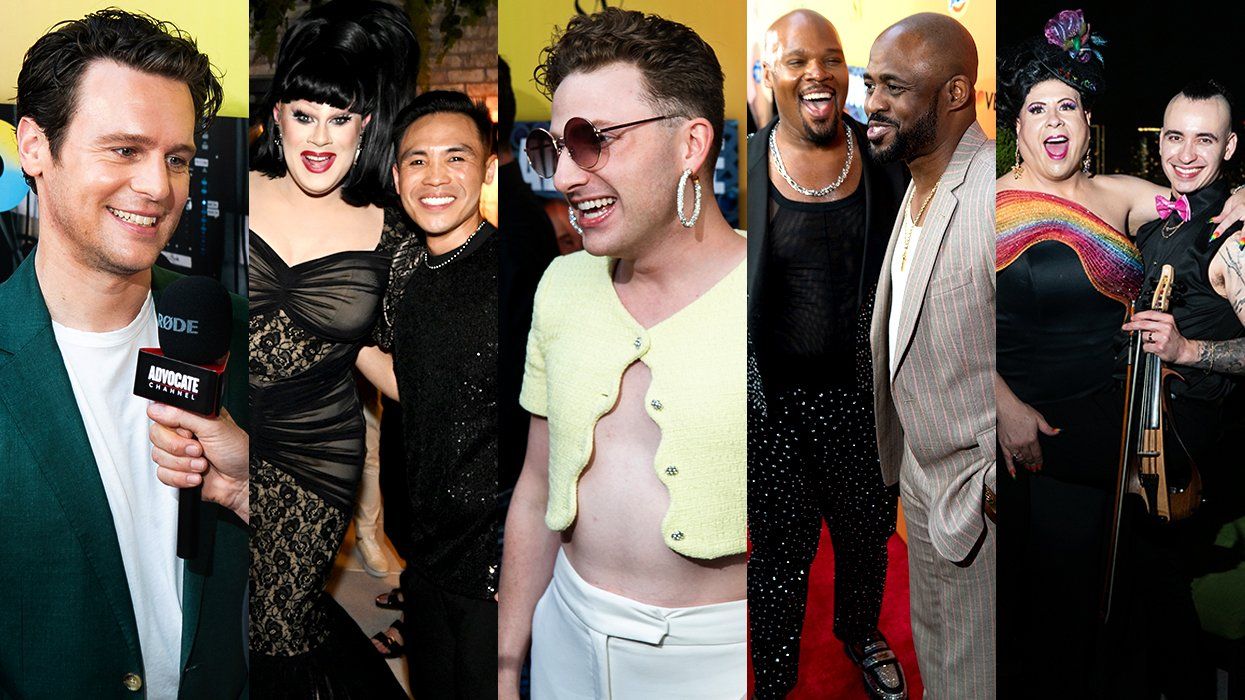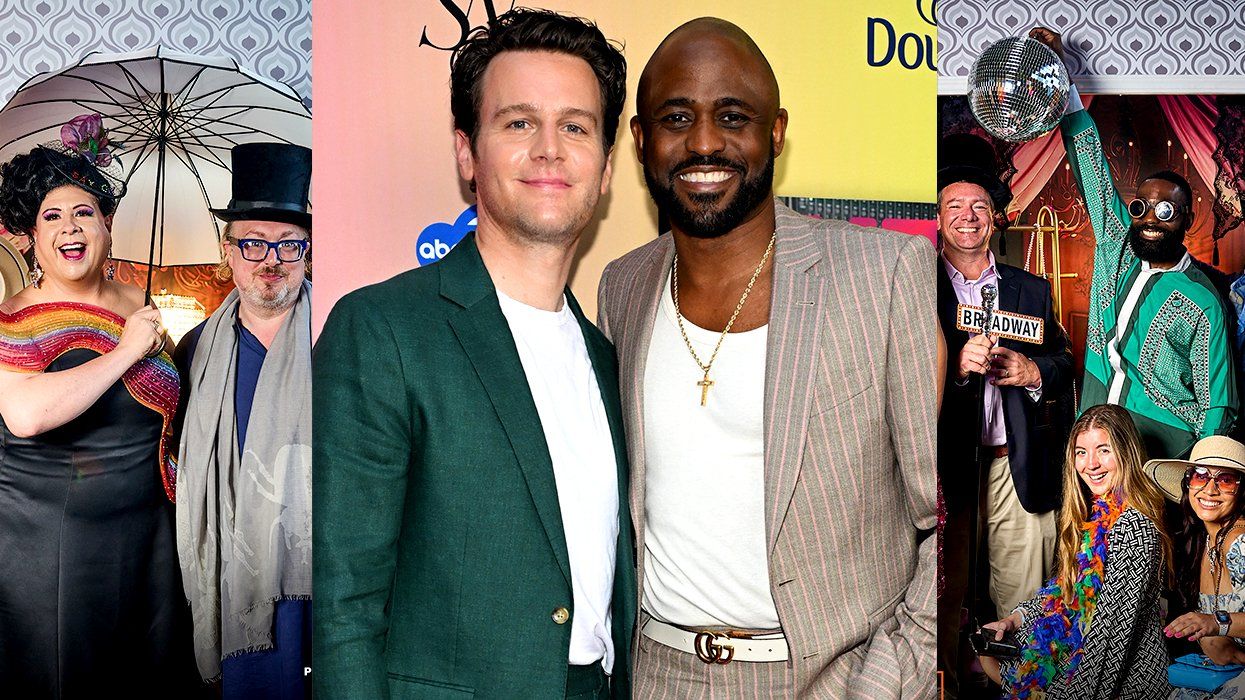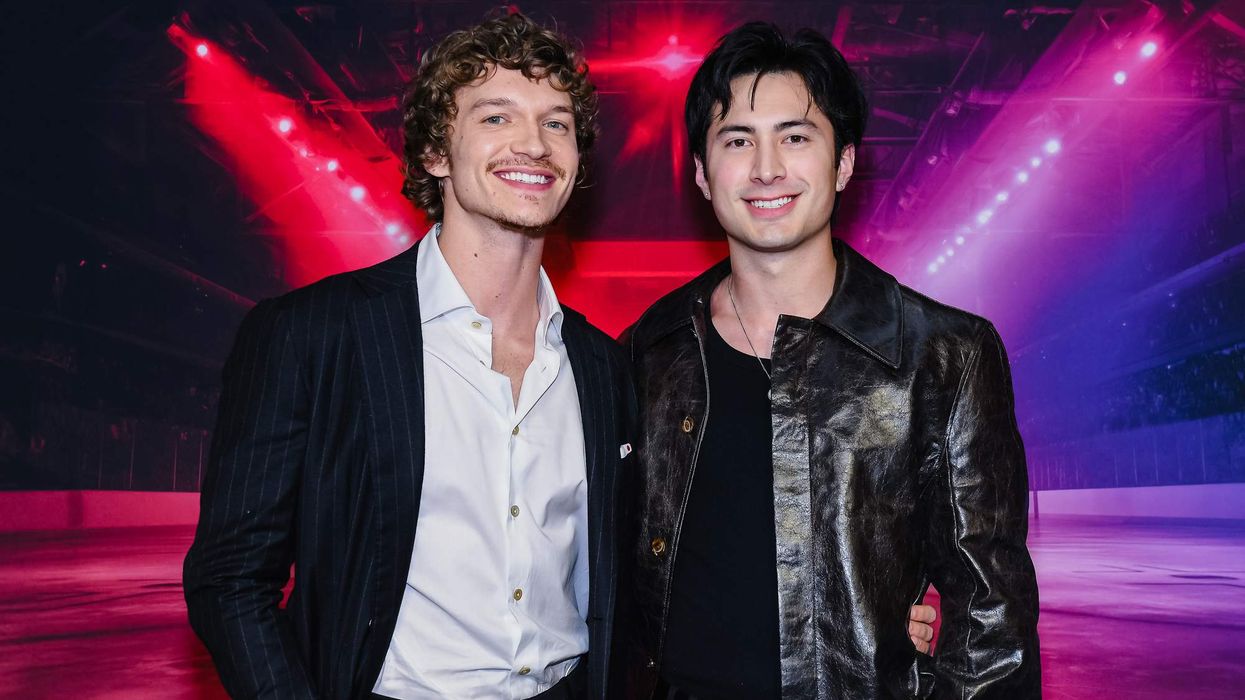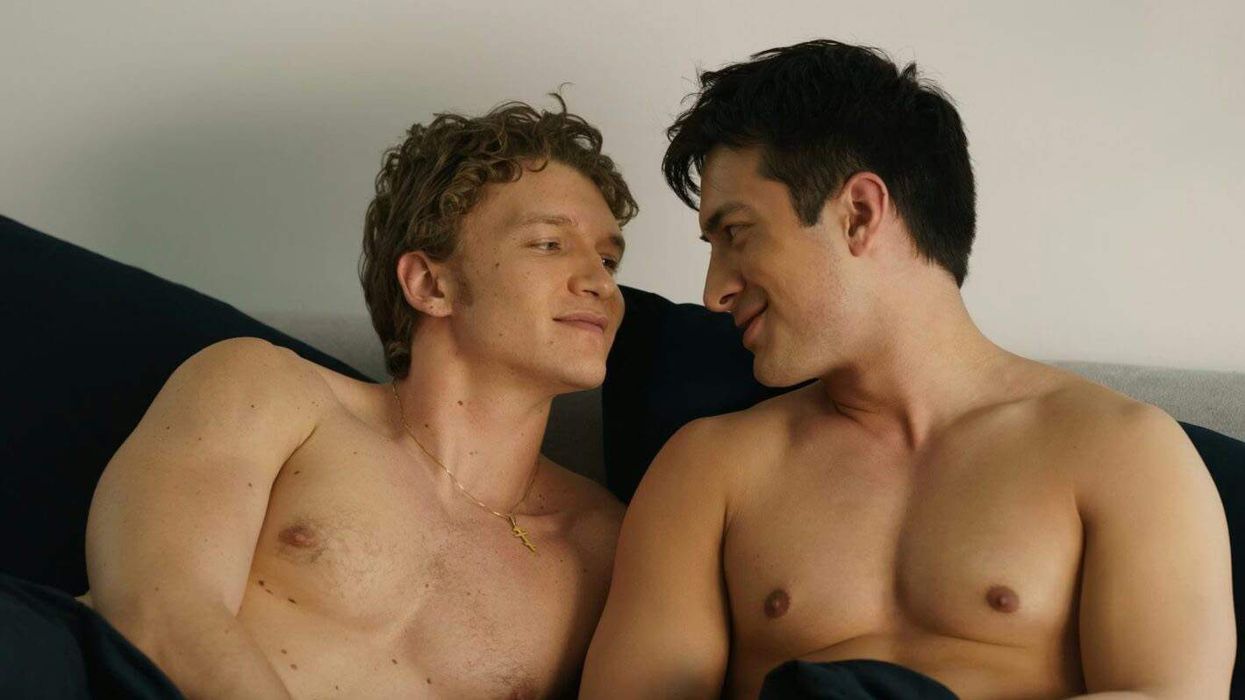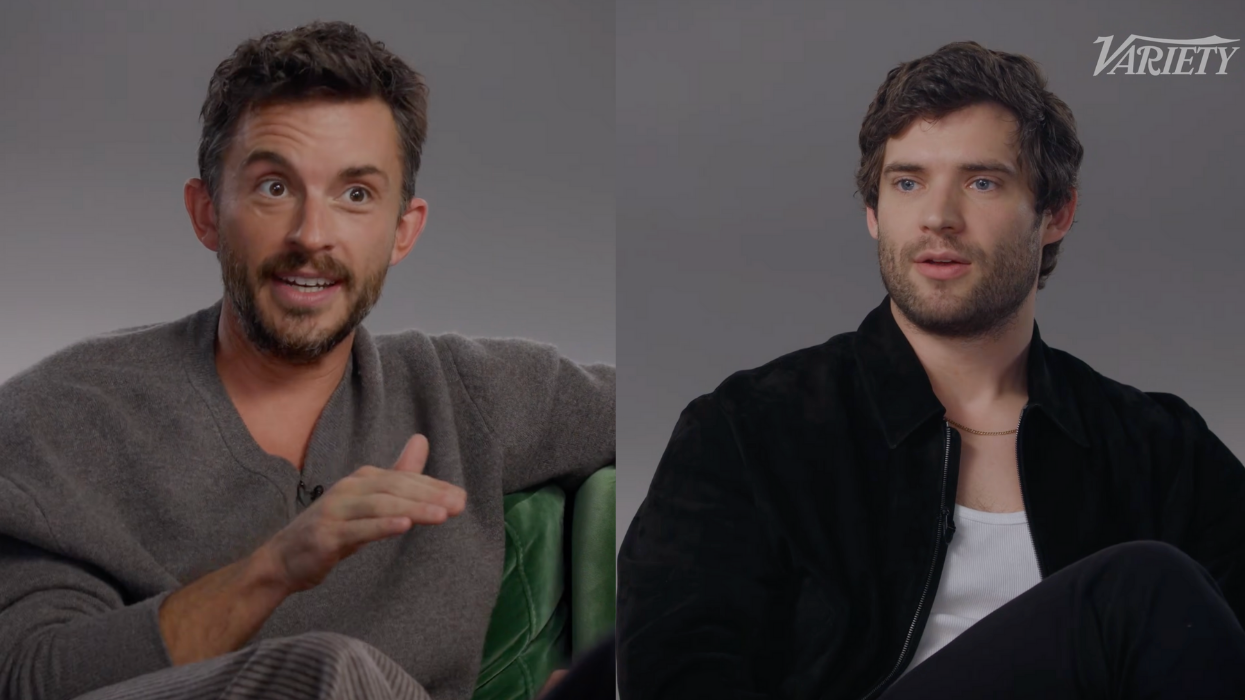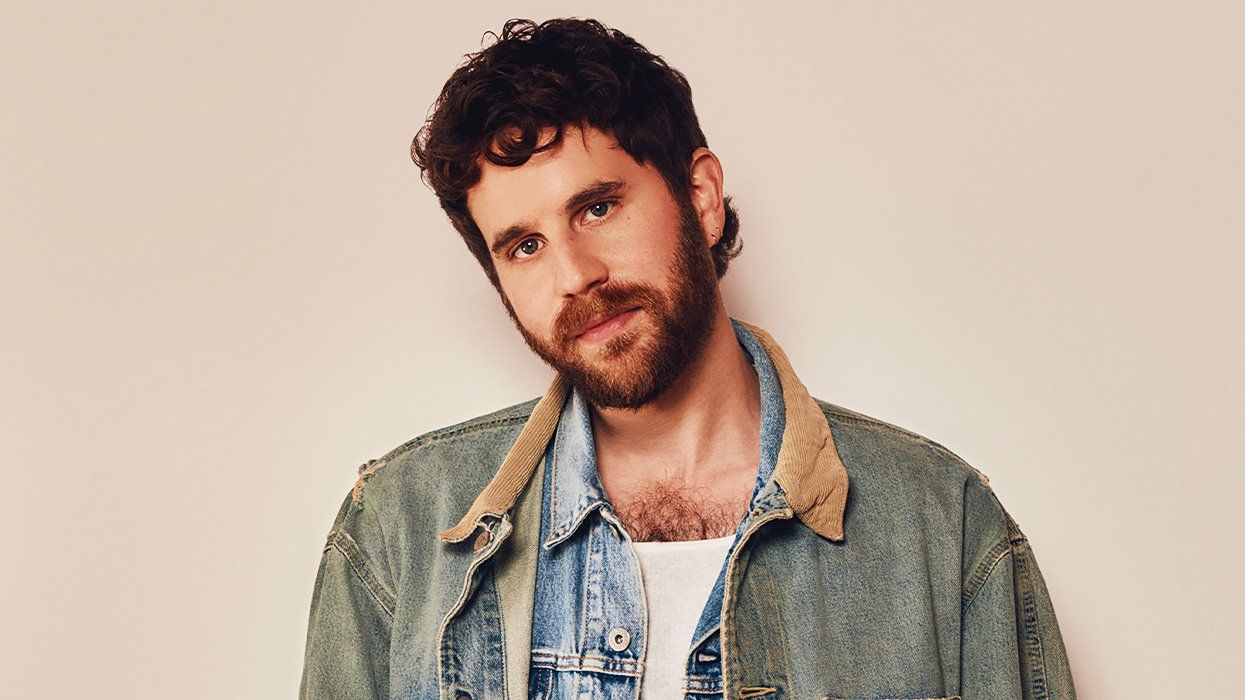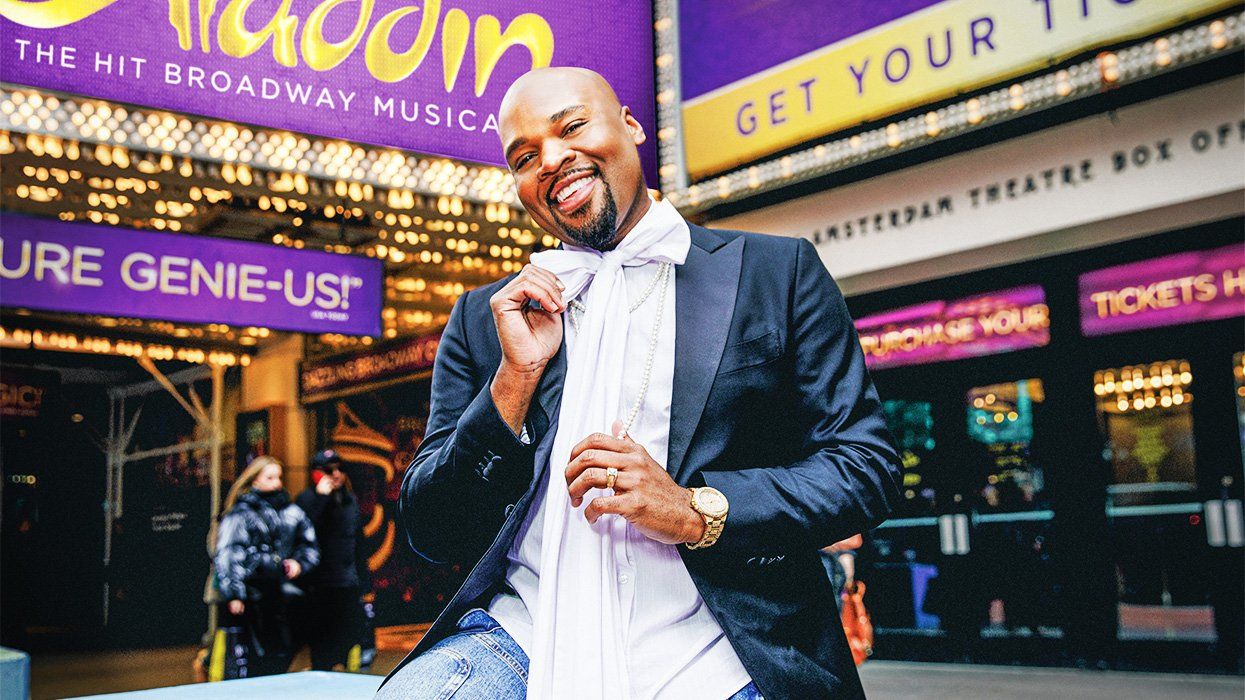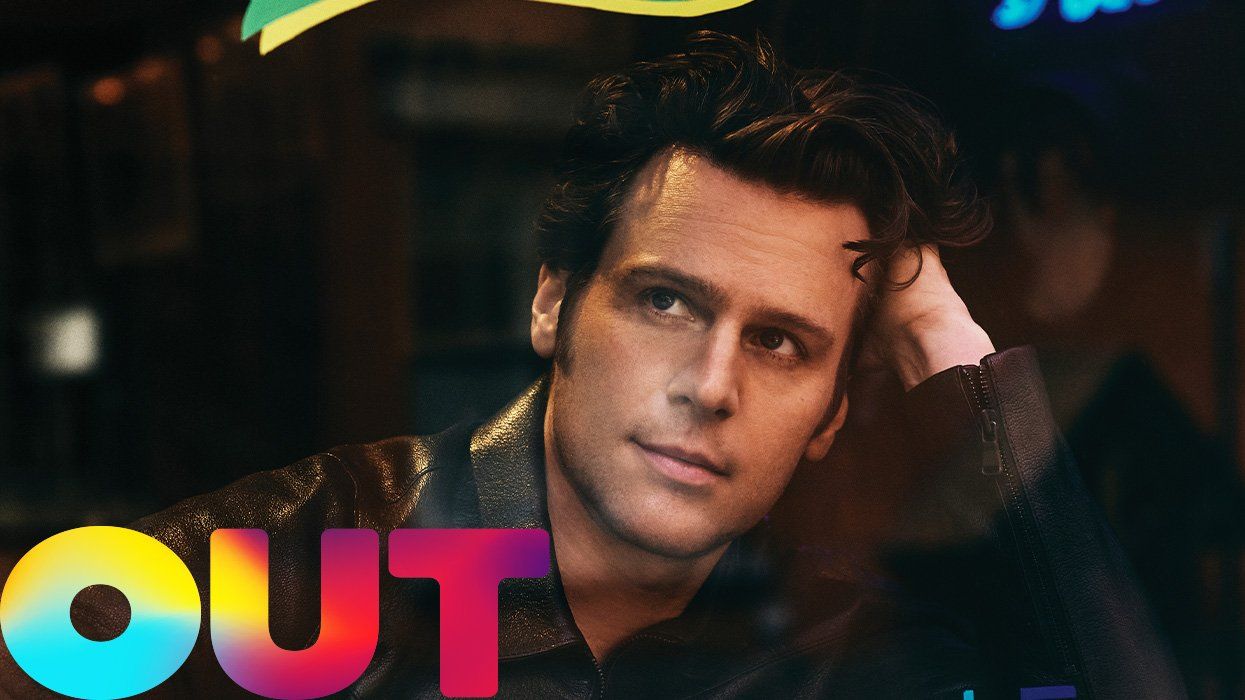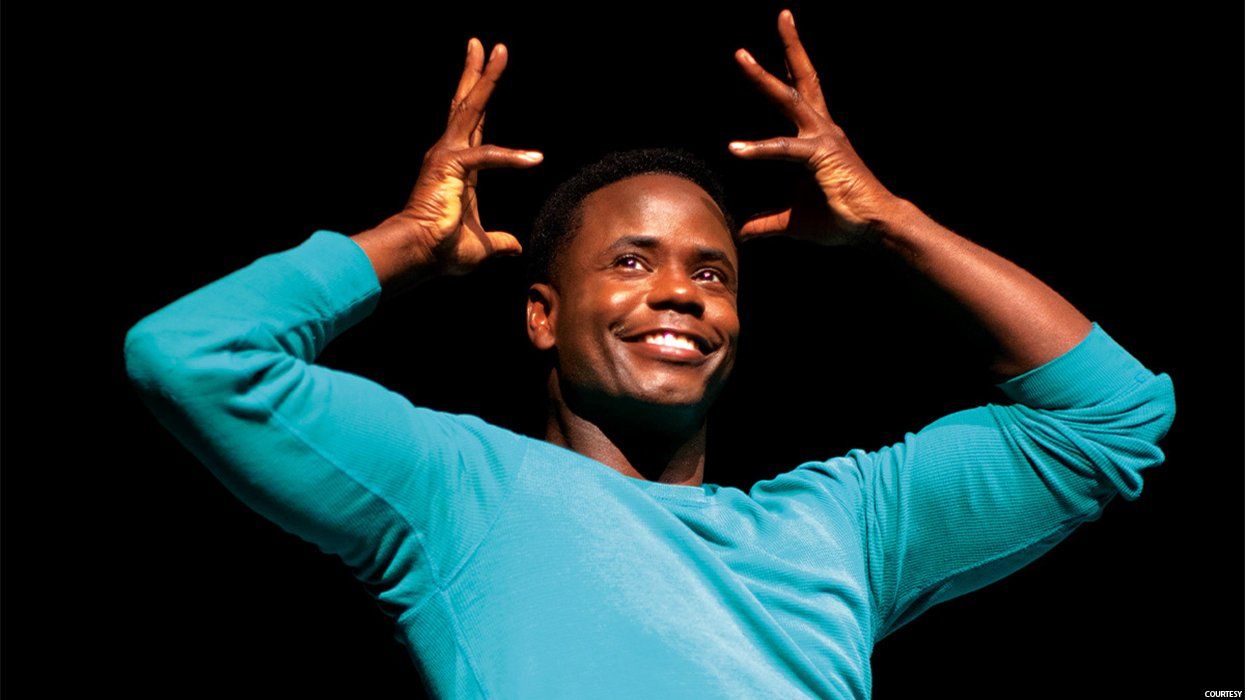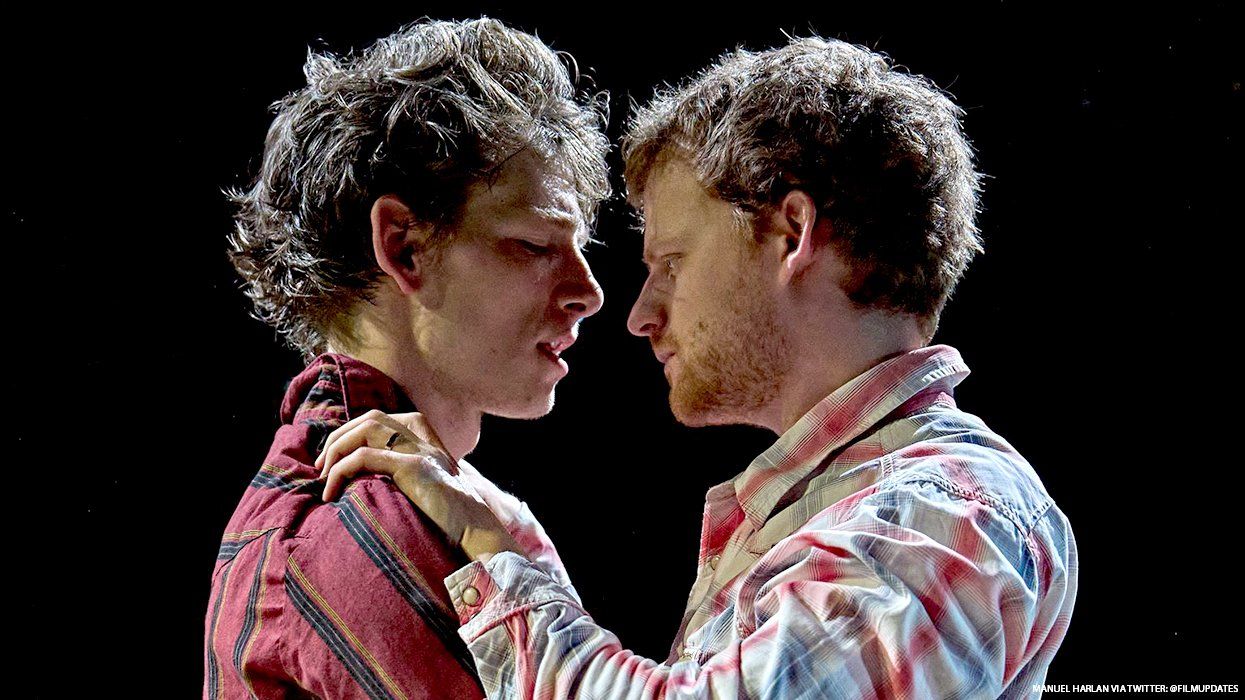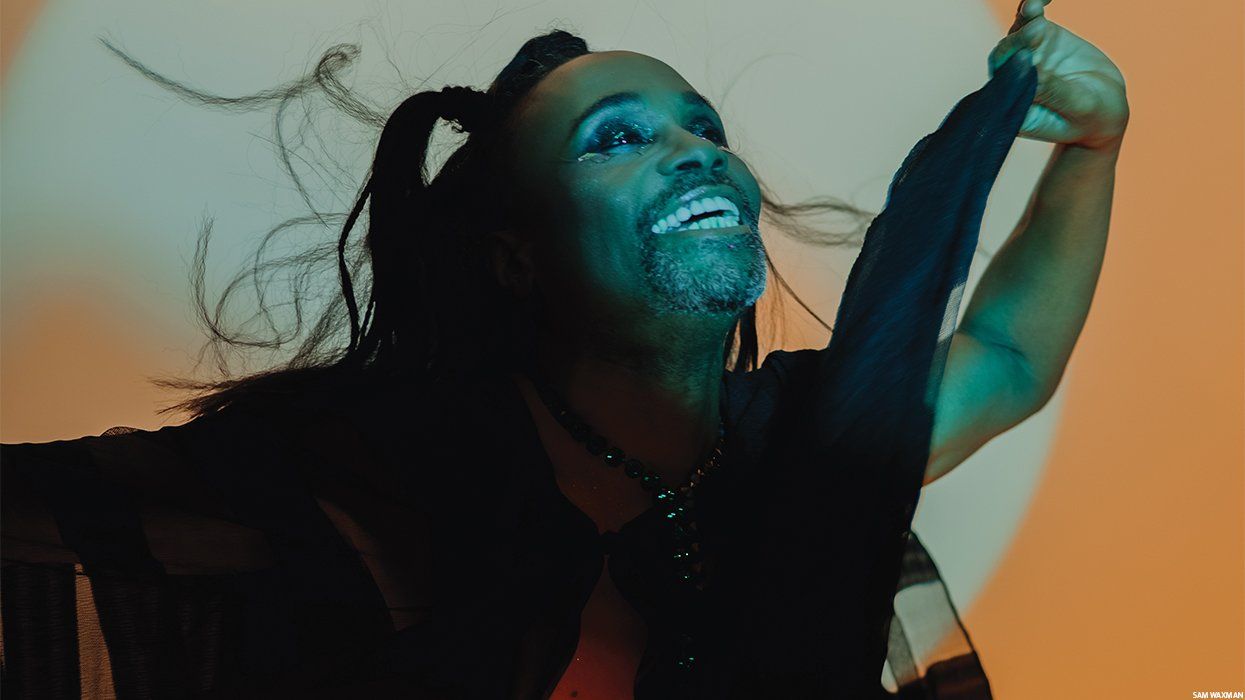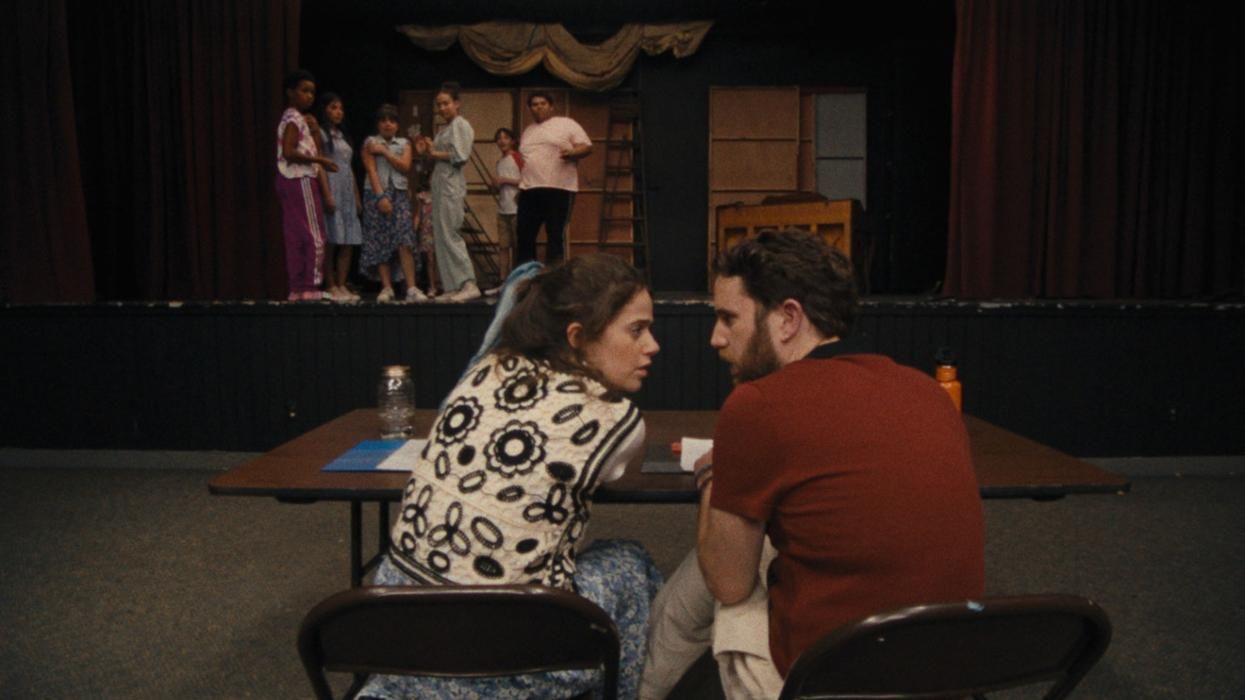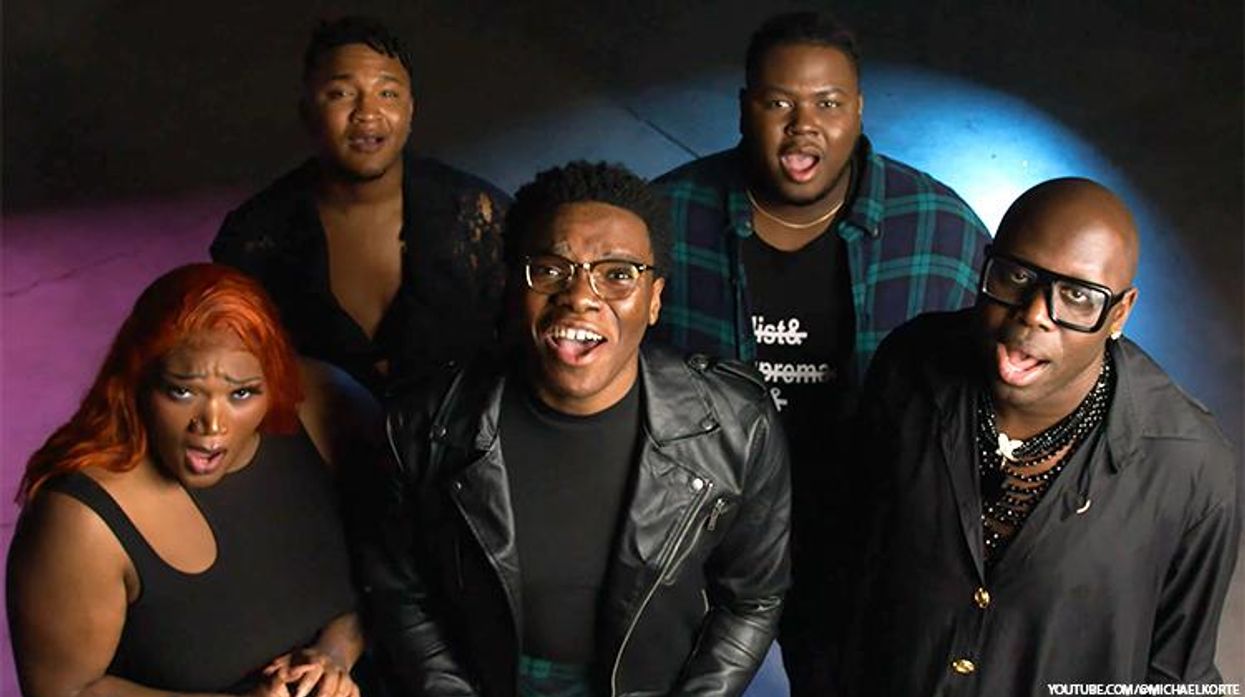Last Thursday evening, while a fresh layer of snow blanketed the city streets, the audience in the Kitchen's Chelsea Theater quieted as a string quartet and lone percussionist took their seats to the side of the stage. The musicians' first notes rang out with equal parts joy and anguish as a chorus of voices began to chant: "Beginning and the end, neither and the otherwise, betwixt and between, the end is the beginning." The singers' voices emerged from behind a set of glittering beaded doors, their designs reminiscent of tarot card icons, spelling out the title of artists Raul de Nieves and Colin Self's opera, The Fool. Over the next 60 minutes, the performance built a sublime emotional experience out of a simple story based on the archetype of the Fool, a trickster who inadvertently incites transformation.
de Nieves and Self, the opera's architects, both performed themselves, respectively as the Dog and the Old Woman. They were joined by Alexandra Drewchin as the Child and Mehron Abdollmohammadi as the Mother, while the Fool itself remained an enigma, affecting the characters' fates by way of a canine companion and proxy, but never manifesting in a physical form. Over the course of the performance, all principals eventually joined the 22-person choir, who first emerged from behind the beaded doors in glowing inflatable chub suits and then later stripped down to white underwear, their faces painted white, as well. The opera's climax and conclusion was the power of a collective singing together in unison.
The performers invited the audience into a viscerally intimate relationship that they'd formed over months of rehearsals. "The real work of the project feels like it's actually about this process of building a community or a group of friends and taking care of each other through this ensemble," Self said, explaining how the artists discovered song and theater can be a tool to rechoreograph conventional relationships. "We are constantly around people, but we don't allow ourselves to let go and become a community," de Nieves added. "The act of singing is a chance to tap into psyches that are hard to tap into on a regular basis. It's a place where you can let your mind speak to your emotions. A lot of emotional states that you are holding onto, they just release themselves through these acts of creating fantasy or telling a story."
The Fool, which ran for three nights at the Kitchen February 9 through 11, is a restaging of the same opera that de Nieves and Self first produced in 2014 at Issue Project Room, while de Nieves was an artist in residence. There were enhancements this time around, better lighting design and more virtuous musicians, for example. The choir was bigger too, and the emotional affects more intense. Right now, we're at a moment culturally where the kinds of social transformations de Nieves and Self are trying to provoke feel even more urgently needed.
"One of the most startling things about revisiting something that we made in 2014 was realizing what a very different world we are living," Self said. "But also there's an amplification of the effects of building something to try to bring people together to use their voice. You give people the opportunity to remember that they have a voice and to use their voice. It's a very empowering thing to remind people that they can scream and shout." One of the rehearsals ended in a group of the performers heading to JFK airport to protest the immigration ban announced in late January. "We had rehearsals that would give me the energy and the fire to go out and protest in the streets," he adds. "I felt this very literal correlation between the practice of being in the choir and singing together and then going to a space like JFK airport and experiencing the act of group vocalization."
The opera grew out of a weekly community choir group Self has been hosting in his home, where he's been inviting singers in the New York queer community to come together for a couple hours each week. Everyone is invited and there's an emphasis on there being no right or wrong way to sing. The formal rehearsals for The Fool followed in the same suit. "We would meet up at the house and share food and have this time to unwind from reality, and at the same time, try to build a sacred space for all of us," de Nieves recalled.
That sanctity was palpable. There was a sublime energy to the performance that felt almost religious, and when I think about what de Nieves and Self are offering their collaborators, parallels of church come to mind. They are offering a space to sing together and an opportunity to feel part of something larger than one's self, but de Nieves and Self are building a new kind of sacred space through their performance practice--one marked by radical queer inclusiveness and no top-down or denominational dogma. "It can be enough of a belief system just acknowledging that you are a body with a voice," Self said.


